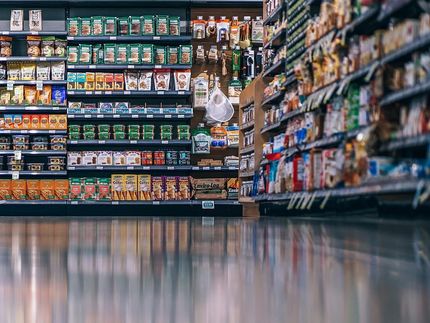Protein pudding does not a diet make
Kiel study shows: "High protein" products also lead to overeating
Advertisement
Muesli bars for building muscle, fitness pizza or protein pudding: More and more foods in the supermarket are being advertised with the words "high protein", giving the impression that they are healthier or help you lose weight. But it's not quite that simple. A research team from Kiel University (CAU) has now investigated whether protein-enriched convenience products make a difference and has come to a clear conclusion: these products also lead to overeating, albeit in a somewhat weaker form. "Highly processed foods have properties that continue to promote excessive energy intake even when enriched with additional protein - and thus increase the risk of obesity," emphasizes Professor Anja Bosy-Westphal from the Institute of Human Nutrition and Food Science.
For the study, 21 young adults were examined in so-called metabolic rooms. There, the researchers were able to precisely measure the energy consumed and expended. The participants were given two diets of highly processed foods one after the other: one normal and one protein-rich. They could eat as much as they wanted. With the high-protein variant, the daily calorie intake was around 200 kilocalories lower and the energy consumption was around 130 kilocalories higher. "Nevertheless, there was still a clear surplus - around 18 percent more calories were eaten than the body consumed. With the normal variant, it was even 32 per cent," reports Dr Franziska Hägele.
Too much, too fast, too high in calories
Highly processed foods such as ready meals, snacks, flavoured yoghurts or protein-rich bars are characterized by a number of typical properties: They contain a lot of calories per gram, are particularly tasty and can often be eaten quickly and without much chewing. "This combination makes it difficult to stop eating in time," explains Anja Bosy-Westphal.
So why do high-protein options help at least a little? For one thing, the body needs more energy to digest protein - so some of the calories are lost again straight away. Secondly, protein influences the body's own feeling of hunger: the hunger hormone ghrelin decreases, while satiety hormones such as peptide YY increase. "We have also observed that protein-rich products are eaten more slowly, for example because they have a different consistency," explains Bosy-Westphal. "This gives the body more time to send satiety signals." But the decisive factor remains: It is not the protein that is the problem, but the type of food. "Even an enriched pudding can be eaten quickly and tastes just as good as a normal one. So you eat more of it than you need," summarizes Franziska Hägele.
Unnecessary for most, helpful for a few
Around half of the daily calorie intake in Germany comes from highly processed foods. Protein supplements - usually made from inexpensive milk protein - do not automatically make these products healthier. For the general population, the additional protein intake is also superfluous. "Most people in Germany eat more than enough protein," says Anja Bosy-Westphal. She sees an exception for older people with chronic illnesses, lack of appetite, underweight or swallowing disorders. In these cases, protein-rich, easily edible products can be a sensible interim solution.
However, if you want to eat a balanced diet and keep your weight under control, you don't need specially fortified products. Pulses, quark, fish or yoghurt provide just as much protein. Texture is also often a decisive factor: something that needs to be chewed usually fills you up more quickly. "People shouldn't be fooled by labels such as 'high protein'," advises the nutritionist. "Because even a protein-enriched ready-made pizza is still a calorie bomb in the end."
Note: This article has been translated using a computer system without human intervention. LUMITOS offers these automatic translations to present a wider range of current news. Since this article has been translated with automatic translation, it is possible that it contains errors in vocabulary, syntax or grammar. The original article in German can be found here.
Most read news
Topics
Organizations
Other news from the department science

Get the food & beverage industry in your inbox
By submitting this form you agree that LUMITOS AG will send you the newsletter(s) selected above by email. Your data will not be passed on to third parties. Your data will be stored and processed in accordance with our data protection regulations. LUMITOS may contact you by email for the purpose of advertising or market and opinion surveys. You can revoke your consent at any time without giving reasons to LUMITOS AG, Ernst-Augustin-Str. 2, 12489 Berlin, Germany or by e-mail at revoke@lumitos.com with effect for the future. In addition, each email contains a link to unsubscribe from the corresponding newsletter.






























































